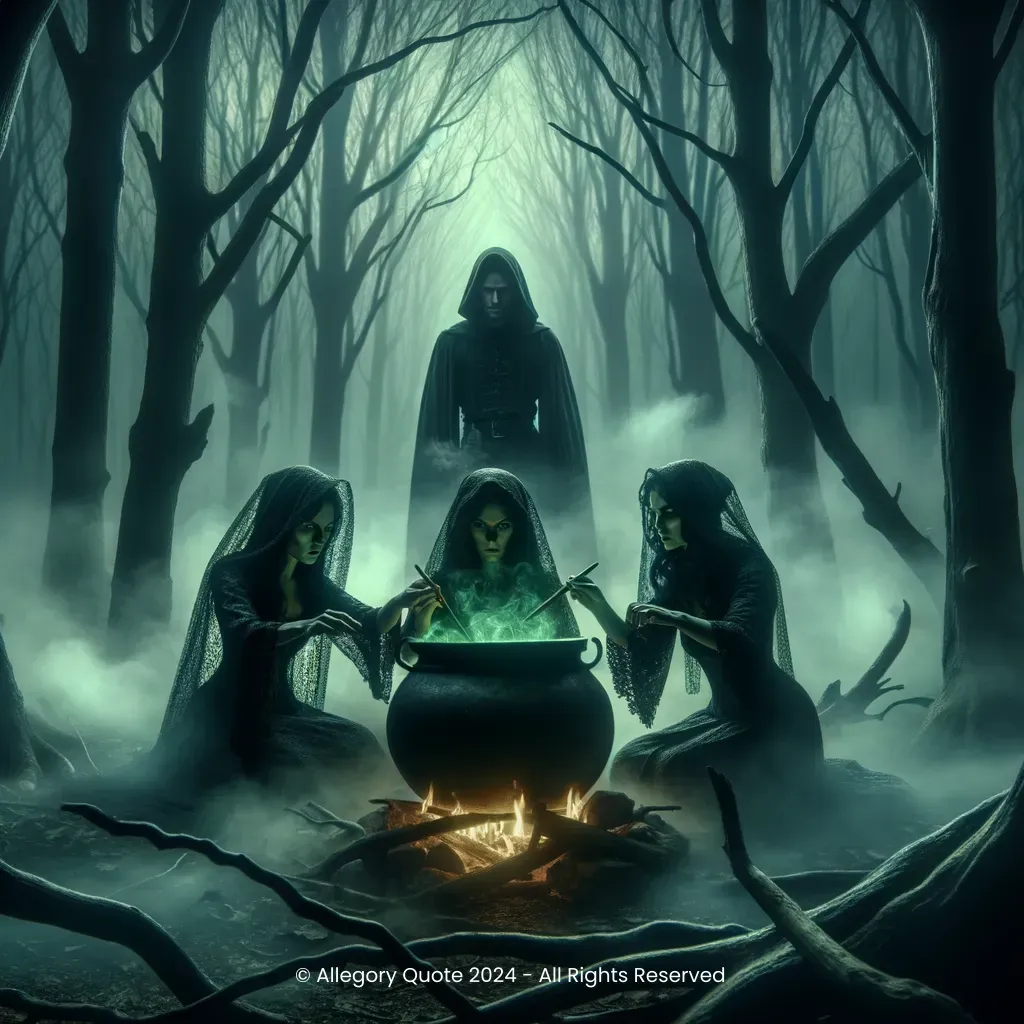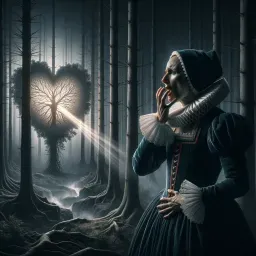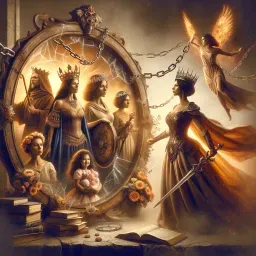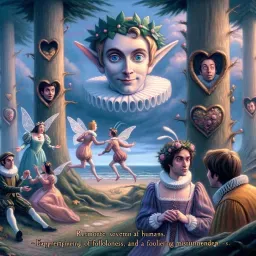”Double, double toil and trouble;
fire burn and cauldron bubble“

0
0
0
0
- Meaning
- This phrase invokes a sense of foreboding and malevolence, capturing the eerie and supernatural atmosphere of the scene in "Macbeth." The witches' chant suggests that they are engaging in dark and mysterious practices, stirring trouble and turmoil through their potions. It reflects themes of witchcraft, destiny, and the dark side of human nature.
- Allegory
- The witches around the cauldron symbolize the conjuring of supernatural forces and the thematic element of fate and manipulation in "Macbeth." The cauldron's eerie glow casts an ominous light, highlighting the malice and dark intentions of the witches. The surrounding dark forest emphasizes the theme of mystery and foreboding. Finally, the shadowy figure of Macbeth approaching in the background signifies the lure and inevitable downfall that comes with tampering with such dark powers, encapsulating the central conflict of the play.
- Applicability
- The phrase can be applied to personal life as a warning about the consequences of meddling with things beyond one's control or engaging in deceptive and harmful practices. It reminds us that actions driven by malice or undue curiosity can result in unforeseen and turbulent outcomes.
- Impact
- This quote has had a significant cultural impact, becoming one of the most recognized lines from Shakespeare's works. It frequently appears in popular culture, from literature and film to music and Halloween references. The chant itself has become synonymous with witchcraft and the supernatural, often evoking the theme of dark magic and foreboding.
- Historical Context
- "Macbeth" was written in the early 17th century, specifically around 1606. This period was marked by a strong belief in witchcraft and supernatural elements, which influenced much of Shakespeare's work.
- Criticisms
- Some criticisms of this phrase and its context in "Macbeth" involve the perpetuation of stereotypes about witches and witchcraft, which contributed to historical witch hunts and the persecution of those accused of witchcraft. These stereotypes can still influence modern perceptions of alternative spiritual practices.
- Variations
- While the phrase itself comes from Western literature, the theme of invoking supernatural forces and the consequences thereof is common in many cultures. Variations can be found in folklore and literature around the world, reflecting universal human fears and fascinations with the unknown and the mystical.
-

The golden age is before us, not behind us.
-

The better part of valor is discretion.
-

The devil can cite Scripture for his purpose.
-

Out, out brief candle!
-

Love looks not with the eyes, but with the mind; and therefore is winged Cupid painted blind.
-

My tongue will tell the anger of my heart, or else my heart concealing it will break.
-

Is this a dagger which I see before me, the handle toward my hand?
-

Frailty, thy name is woman!
-

Get thee to a nunnery.
-

Lord, what fools these mortals be!
-

The robbed that smiles, steals something from the thief.
-

Brevity is the soul of wit.
No Comments